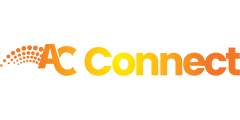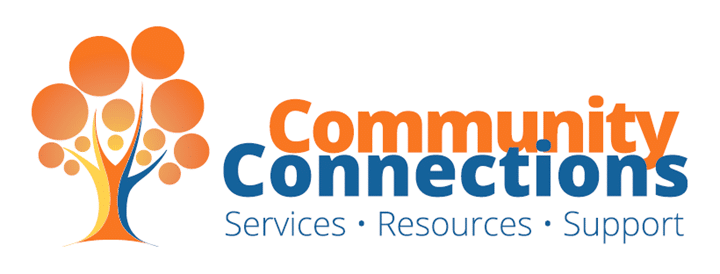Created 03/2022
Introduction
The Amputee Coalition is the only national organization dedicated to serving the over two million Americans with limb loss and limb difference. The National Limb Loss Resource Center® (NLLRC) is dedicated to helping those living with limb loss or limb difference, their families, and caregivers connect with resources at the national, state, and local levels. While the NLLRC cannot make direct referrals to specific providers or services, we do try to point you in the right direction.
Community Connections
The Amputee Coalition’s online database — Community Connections — identifies resources, services, and support at the national, state, and local levels.
Community Connections is a searchable database where you can enter your zip code and find resources closest to you. You also can search by topic area, such as support groups, housing, financial help, home modification among other tags.
Web: https://nllrc.amputee-coalition.org/
Improving Well-Being Program
Individuals living with limb loss or limb difference experience a range of psychological and emotional reactions. Taking stock of your emotional well-being can help you identify problems that may hold you back and recognize positive aspects of your life. We have developed the Improving Well-Being Program in collaboration with researchers at Johns Hopkins University School of Medicine to help you maximize your emotional and physical health. This program consists of A self-directed assessment tool that utilizes widely used validated instruments to assess a patient’s depressive symptomology, satisfaction with life, and rehabilitation goals and offers recommendations for improving emotional well-being. After receiving a description of your two scores, you have the ability to search for resources much like you can using Community Connections.
Web: https://www.amputeewellbeing.org/
Centers for Independent Living (CIL)
- Information & referral
- Independent living skills training
- Individual and systems advocacy
- Peer counseling
- Transition assistance from nursing homes and other institutions to community-based residences
- Assisting individuals to avoid institutional placement
- Transition of youth with significant disabilities after completion of secondary education to postsecondary life.
Web: https://www.ilru.org/projects/cil-net/cil-center-and-association-directory
Aging and Disability Resource Centers (ADRCs)
Aging and Disability Resource Centers raise visibility about the full range of available options and provide objective information, advice, counseling, and assistance. ADRCs empower people to make informed decisions about their long-term services and supports and help people access public and private programs. ADRCs provide unbiased, reliable information and counseling to people with all levels of income.
Web: https://www.usaging.org/adrcs
State Vocational Rehabilitation Programs
Vocational Rehabilitation Programs (VR) provide a variety of individualized services to persons with disabilities in preparation for their employment in the competitive labor market. VR promotes employment outcomes for clients that are consistent with their individual strengths, resources, abilities, capabilities, and informed choice. Services offered by a state VR program will vary from state to state. However, some common services include employment counseling, training, transition services from school to work, rehabilitation/assistive technology assistance, and job placement.
Web: https://rsa.ed.gov/about/states
211s
There are more than 200 211 agencies across the United States. Each 211 center has a team of trained information and referral specialists who are available to help you access local resources and services to address your needs. Examples of services that 211 can help you access are housing, food, transportation, health care, and crisis services. Each center has a robust database of resources in the local area. Many 211s have different options to contact them-by phone, web chat, text messages, and many also have their database online.
Web: https://www.211.org/about-us/your-local-211
Additional Resources
For print requests, please contact:
Amputee Coalition
601 Pennsylvania Ave NW, Suite 420, South Building, Washington, DC 20004
888/267-5669
amputee-coalition.org.
Authors and Contributors
The Amputee Coalition is grateful to the many organizational members and individuals that have contributed to this work. The Amputee Coalition Scientific and Medical Advisory Committee (SciMAC) conducts expert peer view for the Amputee Coalition-commissioned patient education materials. SciMAC contributes clinical and scientific expertise in developing, implementing, and evaluating the Amputee Coalition program and policy initiatives.
Suggested AMA format citation for this material:
Amputee Coalition. How to Locate Resources in Your Area. https://www.amputee-coalition.org. Published March 2022. Accessed [date].
It is not the intention of the Amputee Coalition to provide specific medical or legal advice but rather to provide consumers with information to better understand their health and healthcare issues. The Amputee Coalition does not endorse any specific treatment, technology, company, service or device. Consumers are urged to consult with their healthcare providers for specific medical advice or before making any purchasing decisions involving their care.
© Amputee Coalition. Local reproduction for use by Amputee Coalition constituents is permitted as long as this copyright information is included. Organizations or individuals wishing to reprint this article in other publications, including other websites must contact the Amputee Coalition for permission to do so, by emailing a request to rc@amputee-coalition.org.




